Budget 2017: Shropshire and Mid Wales politicians welcome scrapping of stamp duty for first time-buyers
The Chancellor's decision to remove stamp duty for first-time buyers was broadly welcomed by politicians across the political spectrum – but other changes received a more mixed response.
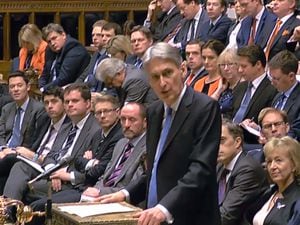
While the Budget was welcomed by the Conservative MPs for Shropshire and Mid Wales, it drew criticism from Labour and Liberal Democrat councillors.
Mark Pritchard, MP for The Wrekin, praised the Chancellor for making more money available for infrastructure, public services and jobs.
Shrewsbury and Atcham MP Daniel Kawczynski also said he was delighted that more money was being made available for the NHS, although he said it was important that the Government continued to reduce the deficit in the public finances.
But Labour's Councillor Shaun Davies said he was disappointed that no mention was made of the pressures on adult social care, while Liberal Democrat Councillor Andy Boddington said it was "a budget for cities", which offered little for rural communities.
Mr Pritchard welcomed news that the Government would be making an extra £2.8 billion available for the NHS, as well as the freeze on alcohol duties and rate relief for pubs.
"It was a good budget for the NHS, education and infrastructure, as well as Shropshire's small businesses, the information technology sector, and the county's pubs," he said.
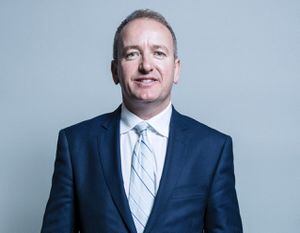
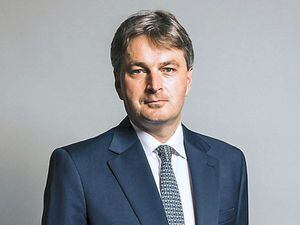
Mr Kawczynski said he was delighted that the Government was getting rid of stamp duty for first-time buyers on properties under £300,000.
"That is very important, it is very difficult for young people to get on the housing ladder, and owning a property is very important part of being able to build a nest egg, as well as the security of having your own home," he said.
"The fact he's managed to put extra money into the NHS and other public services demonstrates the fact we have turned the economy around, the economy is growing, and that means more money for essential services."
Despite the fact that the Office of Budget Responsibility had reduced its growth forecasts, Mr Kawczynski said the economy was still doing much better than many had predicted in the run-up to last year's European referendum.
North Shropshire MP Owen Paterson described it as a "competent, cautious budget", but said the Chancellor could have been bolder in his ambitions.
He said he would have liked to have seen cuts to taxes as an incentive to increase productivity .
Mr Paterson said he was pleased the Chancellor had kept proposals to reduce corporation tax to 17 per cent by 2020, he said Britain could learn from the "tiger economies" of the Far East which had stimulated growth through low income tax.
"The one thing we learned from the Lawson tax cuts of the 1980s was that if you reduce tax you end up growing the size of the cake, and have more money to spend on public services."
Mr Paterson said his experience of talking to business suggested that the economy was doing better than the Office of Budget Responsibility forecast which the Chancellor presented to the House during the Budget.
Glyn Davies, Tory MP for Montgomeryshire, said the abolition of stamp duty for first-time buyers was the most important change.
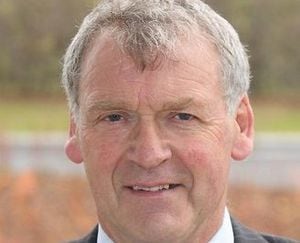
"That's a very big change, it will be a big help to young people in particular, but also to all first-time buyers," he said.
"That is a huge step forward.
"On a personal level, I was also pleased by the extra £1.2 billion being made available for Wales.
"I think it is the first time I have ever heard a Chancellor mention Mid Wales in a Budget, when he spoke of a North Wales and Mid Wales growth deal."
He said the downgraded growth forecast from the Office of Budget Responsibility confirmed what was already known.
"I think the main concern we have is about productivity, it's been a problem for the UK for years, that's the real problem for Britain," he said.
"It's not something we can deal with overnight, it's very difficult and it's going to take time. That has got to be done through training and investment.
"Unemployment levels are very small, that's not the real issue, the real issue is productivity, that's the biggest worry."
Councillor Boddington, a Liberal Democrat representing Ludlow, described it as a budget for cities, which ignored the needs of rural communities.
"What happened to rural England in the budget?" he said.
"There were announcements galore for cities, but the 'rural' word was not mentioned once during the Chancellor’s speech.
"The only thing that looks like it will benefit rural villages and towns is the cancellation of a rise in fuel duty."
More on the Budget:
Councillor Boddington said the Chancellor had, in particular, overlooked the need for affordable rural housing.
"The Chancellor said 'We will focus on the urban areas where people want to live and where most jobs are created.'
"We desperately need funding for small schemes for young workers to keep villages and the countryside thriving."
He said while extra funding for the NHS was to be welcomed, there was no mention of the current reorganisation of the NHS, and was "sweeping health services away from rural areas into the towns and cities.
"This was a budget for cities, not for rural England."
Councillor Davies, the Labour leader of Telford & Wrekin Council, said his biggest disappointment that no mention was made of adult social care.

"Adult social care is the biggest priority facing local government at the moment, not just for Labour but also if you speak to Conservative councillors or the Local Government Association, yet there was not a mention of it, zero, zilch, nothing," he said.
"I welcome the move to repeal stamp duty for first-time buyers, that will help a lot of people across Shropshire, Telford & Wrekin, but the biggest problem is getting houses built.
"By the Government's own figures are predicting a 2.5 per cent increase in house prices, so although getting rid of stamp duty will help them, they will be spending more to buy their house.
"I also find it shocking that the Government is spending more than £3 billion on Brexit preparations, more than the extra money it is making available for the NHS."
Lucy Allan, MP for Telford, said it was a good budget for the town.
"I was particularly pleased to see more money for the NHS, no stamp duty for first time buyers, no income tax on the first £11,850 per annum, the minimum wage up by £600 a year for full time workers, and more money for the West Midlands," she said.
"There was good news for small business with the Chancellor leaving the threshold at which small businesses pay VAT unchanged and fuel duty frozen. There was real emphasis on investing in technology, innovation and skills which are all key to Telford’s future."
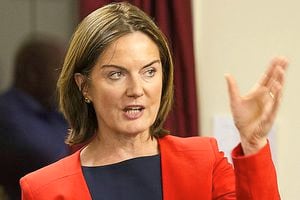
She said the Chancellor had also made £31,000 available for the Army Welfare Service in Donnington.
"I was pleased to see the Government’s commitment to using New Town Development Corporations to bring forward significant investment in new towns and the necessary infrastructure to support them," she said.
Not everybody welcomed the cut to stamp duty, though.
Lea Karasavvas, managing director of Prolific Mortgage Finance, accused the Government of taking money from future generations to help the millennials.
"Primary school children have taken a Stamp Duty bullet so millennials can get on the housing ladder.
“It is uncharacteristic of the Chancellor to kick the can down the road like this, given how much he has stressed in the past the importance of not saddling future generations with the cost of solving society’s current problems.
“The whole point of the housing crisis is that demand is too high relative to supply. Fiddling with the economic stop cock by effectively handing out free money only exacerbates the problem and won’t help buyers, brokers, lenders or sellers in the long run."
Quentin Willson, of pressure group FairFuelUK, said he was pleased the Chancellor had frozen fuel duties on vehicles.
"We're pleased the Chancellor has understood the debilitating effect of raising fuel duty on consumers, households, businesses and the broad economy.
"He knows that now is not the time for gesture politics and that’s why he’s listened to the everyday anxieties of FairFuelUK’s 1.5 million supporters and continued the duty freeze.”
Business leaders react to the Budget
Bosses have given a lukewarm response to business-focused measures introduced in the Budget.
Karen Whitehead, of KEW Accountants in Telford, works with numerous businesses across the county and said Mr Hammond’s decision to keep the VAT threshold at £85,000 for small businesses was bad news.
“His inaction on VAT will do nothing but cause more problems,” she said. “Had the Chancellor reduced it, as some thought he would, down to £20,000 he would have reduced the pressure on VAT-registered businesses having to compete with non-registered competitors.
“But for the number of people that are just over the threshold, having to register can in some cases completely wipe out their profits, so not increasing it in line with inflation gives those people a bigger problem.
“Doing nothing is a lot worse than doing something, whichever way he went with it.
“As for the reduction in business rates, any reduction has to be welcomed in order to help revive our high streets where the business rates are just not affordable for most small businesses.”
Shropshire Chamber of Commerce chief executive Richard Sheehan said a move to change the way business rates are calculated would benefit businesses – but more progress was needed.
"We have been working through our Westminster operation to impact on business rates in a positive way," Mr Sheehan said. "We are relentless in our lobbying to ensure that this outdated form of taxation on business gets reviewed and businesses are treated in a fair way based on their ability to pay."
He added: "Any downward forecast of growth for UK PLC is a concern, but it doesn't wholly come as a surprise given the level of uncertainty that exists around Brexit in particular and sends a very strong message to Government that they need to bring forward clarity and transparency around the negotiations."
Chris Pallett, managing director of Bespoke Computing, said: "You certainly wouldn't call this a thrilling budget for the technological advancement of our nation.
"There were investment funds announced to back innovative businesses and those which need longer to develop their potential. That's important, but somewhat removed from most day-to-day IT and communications priorities.
"Perhaps the most significant, practical support for national infrastructure announced by the Chancellor is around funding for testbeds and trials of 5G networks, which will be the next generation of wireless data and promise to be a major step-change from what we have now. However, that amounted to only a £15m investment in development."





